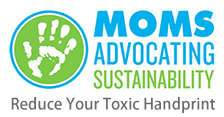By, Myrto Ashe, MD, MPH, a functional medicine family physician
Glyphosate, the world’s most common herbicide, has been declared a probable carcinogen by the World Health Organization (WHO) via its International Agency of Research on Cancer (IARC). Glyphosate is the key component of Monsanto’s “Roundup” and also a component of the new “Enlist Duo” recently marketed to be used in conjunction with some of the newest genetically modified crops resistant to both glyphosate and the herbicide 2,4-D.
This is a huge blow to Monsanto, whose business model involves developing, marketing and obtaining market near-monopoly for crops genetically engineered to withstand the pesticides they sell.
Without glyphosate, there is no need for the majority of genetically engineered crops (not by type, but by volume). Without Roundup and Enlist Duo, I am not sure there is really any Monsanto.
So, while I greet the news from the WHO with a sense of satisfaction that decades of scientific findings had finally prevailed, I am also very concerned about this decision being retracted. This has happened previously in response to research claims about the adverse effects of glyphosate.
So I went to bed last night with a sense of vindication tempered by a sense of concern about the futility of opposing such a huge global trend.
But then I woke up with this thought in mind: we may not have as much power as Monsanto, as individuals, but with our social networks, we just might.
Here’s what you can do: glyphosate is used by agriculture, by business and government, and by individuals. Address these with one small action each.
1. Understand that pesticides are not needed to feed the world. Famine is about politics, not agricultural production. Please don’t fall for industry arguments.
2. Buy organic food: as far as your food supply is concerned, most of the glyphosate is used in wheat, sugarcane and potato harvesting. The FDA does not test for glyphosate residue, having declared it safe. The production of soybeans and corn to feed livestock is another huge contributor to the use of this herbicide, so processed food and conventionally grown meat may be other important sources of dietary glyphosate.
3. Make a small fuss at any restaurant you frequent: let them know their cookies-brownies-pastries-pretzels-bagels-donuts-noodles-baguette-pizza-burger bun need to be organic because otherwise they are full of glyphosate, which causes cancer.
4. Write your local Parks and Rec, school superintendent, children’s playground or local business with landscaping. Explain that you certainly hope they do not use glyphosate as an herbicide because it is carcinogenic according to the WHO.
5. If you have Roundup at home, return the leftovers to the store where you bought it. Offer to return your neighbor’s. Take it to the hazardous waste dump if they can’t remember where they bought it.
6. Post to your online neighborhood or parents’ group. Just let them know that no matter what they hear in the future, this product is very unlikely to be as safe as previously thought. This is a huge deal: I am sure the International Agency of Research on Cancer did not come to this decision lightly or hastily.
7. Please understand that discovery of harm is likely to happen eventually with all pesticides, including herbicides and insecticides. These are biologically active chemicals, or they wouldn’t actually work. They won’t kill us, but they will make some of us sick, especially those of us who apply the chemicals, and those of us who are genetically susceptible.
8. If you see weedy landscaping, please do not write to complain. If you need to comment, recommend they find landscaping alternatives that naturally discourage weeds.
9. Live organic! This may include purchasing key items made of organic cotton, organic wool (such as Icebreaker), organic shampoo ingredients and so on. Each of the consumer items you use may represent agricultural workers somewhere who had to apply chemicals to eventually produce what you are thinking of buying. Protect them with your dollars if you can. Look for an organic seal, not just the word “Organics” in the name of the product (or read the list of ingredients).
10. And thank you for helping every day to create a safer, more vibrant world.
A version of this article was originally published on Unconventional Medicine, a blog by Myrto Ashe, MD, MPH. © Myrto Ashe, MD, MPH. It is reprinted here by permission.

